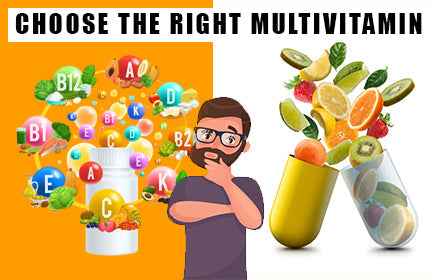Additional Benefits of Vitamin C, Memory Support, Iron Absorption, Gout Prevention, Immune Function
Recently, I posted an article investigating vitamin C and its scientific association between chronic health and cardiovascular disease, so before reading this article, you can access that one by clicking here. I recommend reading that article before this one in that article we present some declarative facts about vitamin C as well as discuss its antioxidant properties.
Vitamin C is a phenomenal substance and offers a seemingly multitudinous number of benefits, more than just antioxidant support and promoting cardiovascular health, which are authenticated through many published studies. In this article, we will inspect vitamin C research as it relates to aging memory, iron deficiencies, gout prevention, and most notably, immune function.
Memory Function
In a previous article, we examined the underlying functions of Alzheimer’s disease and dementia.
We also noted Alzheimer’s disease is the sixth leading cause of death in the United States, and by 5020, 14 million Americans will have the condition [1]. Also, keep in mind Alzheimer’s is just a type of dementia, which broadly encompasses symptoms of diminished memory and thinking.
Studies have shown that oxidative stress and inflammation near the brain and around the nerves can increase one’s risk of dementia [2] [3] [4] [5]. One study even went as far to say, “We propose that the majority of cases share a vascular pathology and that oxidative stress is central to this common pathology,” noting that oxidative stress plays a vital role in this disease [2].
For example, a 1998 study found that oxidized lipoproteins may play a role in neuronal cell death in Alzheimer’s disease [6].
Because vitamin C is a powerful antioxidant, scientists have investigated the link vitamin C deficiency and these diseases, or more broadly, memory loss.
A 2018 study investigated the relationship between vitamin C deficiency and healthy memory function. The researchers noted that because vitamin C is both an essential antioxidant and a necessary component in the growth of neurotransmitters, vitamin C deficiency would cause memory deficits [7].
Moreover, additional studies have linked vitamin C deficiency to decreased cognitive function in elderly people [8] [9], with one study noting, “A high vitamin C intake may protect against both cognitive impairment and cerebrovascular disease” [8].
Animal studies have found vitamin C deficiency in mice impairs cognition and increases oxidative stress [10]. Moreover, two studies which compared vitamin C plasma levels in patients with dementia to a control group found that concentrations were lower in subjects with dementia [11] [12].
Besides, studies have shown that vitamin C supplementation has a protective effect.
In one study, researchers concluded, “Vitamin C in dose 130-500 mg daily should be used to prevent dementia and neurodegenerative pathology” [13], and researchers in another study supported that vitamin C supplementation could be useful in slowing the progression of dementia [14].
Finally, studies have noted that a diet high in vitamin C has a protective effect on cognitive function and a fading memory [15] [16] [17].
To summarize, because low levels of vitamin C are associated with an increased risk of dementia, a diet high in vitamin C and vitamin C supplementation are beneficial in people with dementia and are associated with a lower risk of developing such diseases, possibly through the compound’s potent antioxidant properties.
Iron Absorption
Because iron plays a vital role in the production of red blood cells and transporting oxygen throughout the cardiovascular system, being iron deficient can cause a wide array of health problems. Though most people receive enough iron through their diets, some people have iron-deficiency anemia. Also, iron is different from other minerals in the body because the body regulated iron levels through absorption only, since there is no physiologic mechanism for excretion
Vitamin C supplementation has been shown to assist in the absorption of iron that is typically difficult to absorb, such as plant sources. Therefore, vitamin C supplementation may be particularly necessary for people following an animal-free diet.
In a 2010 study, researchers noted that vitamin C might increase the absorption and bioavailability of iron through these plant sources [18], and in a 2000 study, researchers found that supplementing with 100mg of vitamin C may increase iron absorption by 67% [19].
Moreover, in a 1992 study, researchers investigated the effect vitamin C supplementation would have in children with mild iron deficiency anemia (IDA). The researchers found that vitamin C alone could effectively control children’s IDA. They noted that 50 mg/day of vitamin C was the most efficient dosage, with a six-week minimum time for effective therapy, but since this was concerning children, the adult dose would probably be 100 mg/day [20].
Gout Prevention
According to a 2007-2008 National Health and Nutrition Survey, gout affects 3.9% of Americans, with the distribution between men and women were 5.9% and 2.0%, respectively [21].
Uric acid is a waste naturally produced by the body. Most of the time, a high uric acid level occurs when the kidneys do not remove uric acid effectively. Being overweight, having diabetes drinking alcohol regularly, or taking certain diuretics can diminish the kidneys’ ability to remove uric acid. When there is too much uric acid in the blood, gout symptoms appear.
According to a 2011 publication, “Such attacks are characterised [sic] by sudden onset of excruciating joint pain, typically taking less than 24 hours from symptom onset to reach peak intensity, with associated joint swelling, overlying erythema and exquisite tenderness to touch” [22].
If a patient forgoes treatment for too long, “the patient may develop chronic tophaceous gout, characterised [sic] by chronic pain and stiffness, joint damage and erosive arthropathy,” among other issues [22].
However, vitamin C may be able to help prevent gout attacks because it can help to reduce the level of uric acid in the blood, and several studies support this notion.
In a study that was conducted from 1986 to 2006, researchers examined the relationship between vitamin C intake and one’s risk of developing gout in 46,994 male participants with no history of gout. Their vitamin C intake was assessed every four years through validated questionnaires [23].
During the 20 years, the researchers documented 1,317 (2.8%) confirmed cases of gout. Through statistical evaluations, the researchers found that those who supplemented has a 44% lower risk of developing gout. The researchers confirmed, “Higher vitamin C intake is independently associated with a lower risk of gout. Supplemental vitamin C intake may be beneficial in the prevention of gout” [23].
Further, a 2008 study found that vitamin C supplementation was inversely associated with gout concentrations in the blood [24].
Moreover, in a meta-analysis of randomized controlled trials, which included thirteen trials and 556 participants, researchers found that vitamin C supplementation significantly lowered serum uric acid levels [25].
Immune Support
It should not be surprising that vitamin C has a role in immune function because that is one of the main reasons why people take vitamin C supplements.
Vitamin C helps promote the production of white blood cells, which help to protect the body against infections [26], protects these white blood cells from harmful molecules and makes them function more efficiently [27], and is essential for the skin defense system [28].
Studies have also investigated vitamin C supplementation as it relates to the treatment of specific ailments.
For example, in a 1989 study, researchers found that vitamin C had significant therapeutic activity in patients with hepatitis A [29].
Also, a 2013 study found that vitamin C played a critical role in an organism’s anti-viral immune response against the influenza virus [30].
Finally, 2016 study found that vitamin C supplementation decreased the pneumonia risk in patients with vitamin C deficiency [31].
Conclusion
By now, I hope you have a thorough understanding of some of the benefits vitamin C supplementation offers. Not only is vitamin C essential for proper immune system function, but it also has a role in iron absorption, gout prevention, and because of its potent antioxidative properties, it may help maintain a healthy memory in older people.
If you are looking for a vitamin C supplement, check out Healthmasters’ Vitamin C product. It features black pepper extract to ensure bioavailability and absorption.
If you have any questions about Healthmasters’ Vitamin C, please feel free to call our office at 800.726.1834.
References:
[1] https://www.alz.org/media/Documents/alzheimers-facts-and-figures-infographic-2019.pdf
[2] https://www.ncbi.nlm.nih.gov/pubmed/19221412
[3] https://www.ncbi.nlm.nih.gov/pmc/articles/PMC4840676
[4] https://jamanetwork.com/journals/jamaneurology/fullarticle/775665
[5] http://www.ncbi.nlm.nih.gov/pubmed/9565971
[6] https://www.hindawi.com/journals/mi/2015/624801
[7] https://www.ncbi.nlm.nih.gov/pubmed/29966224
[8] https://www.ncbi.nlm.nih.gov/pubmed/8595334
[9] https://www.ncbi.nlm.nih.gov/pubmed/6842805
[10] https://www.ncbi.nlm.nih.gov/pmc/articles/PMC4476071
[11] https://www.ncbi.nlm.nih.gov/pubmed/14978605
[12] https://www.ncbi.nlm.nih.gov/pubmed/22710913
[13] https://www.ncbi.nlm.nih.gov/pubmed/28805771
[14] https://www.ncbi.nlm.nih.gov/pubmed/28778589
[15] https://www.ncbi.nlm.nih.gov/pubmed/17508099/
[16] https://www.ncbi.nlm.nih.gov/pubmed/14732624/
[17] https://www.ncbi.nlm.nih.gov/pubmed/9663403/
[18] https://www.ncbi.nlm.nih.gov/pubmed/20200263
[19] https://www.ncbi.nlm.nih.gov/pubmed/10799377
[20] https://www.ncbi.nlm.nih.gov/pubmed/1642785
[21] https://www.ncbi.nlm.nih.gov/pubmed/21800283
[22] https://www.ncbi.nlm.nih.gov/pmc/articles/PMC3117776/
[23] https://www.ncbi.nlm.nih.gov/pubmed/19273781
[24] https://www.ncbi.nlm.nih.gov/pubmed/18464304
[25] https://www.ncbi.nlm.nih.gov/pubmed/21671418
[26] https://www.ncbi.nlm.nih.gov/pubmed/25157026
[27] https://www.ncbi.nlm.nih.gov/pubmed/29099763
[28] https://www.sciencedirect.com/science/article/pii/S0891584998001324
[29] http://www.ncbi.nlm.nih.gov/pubmed/2633390

